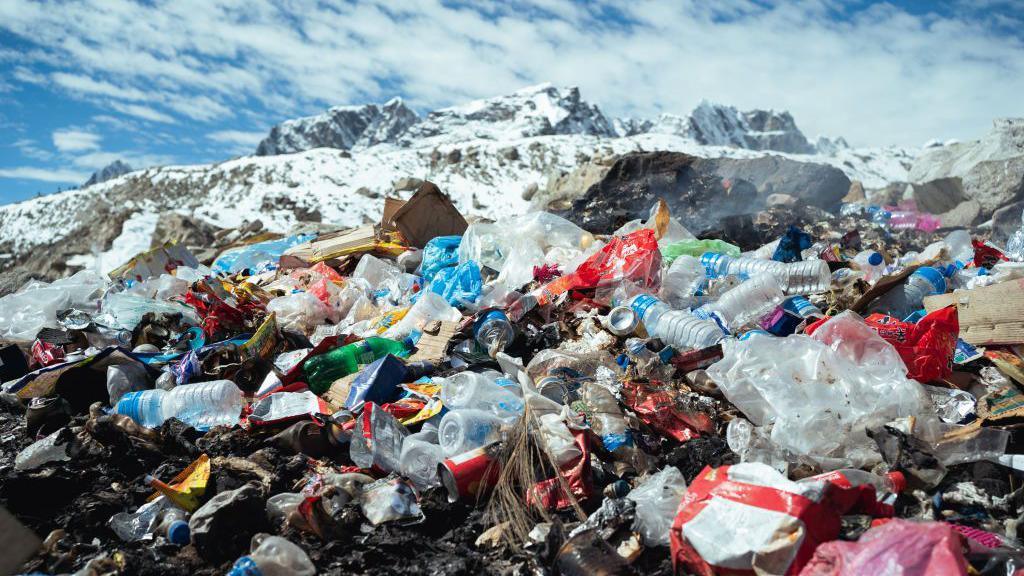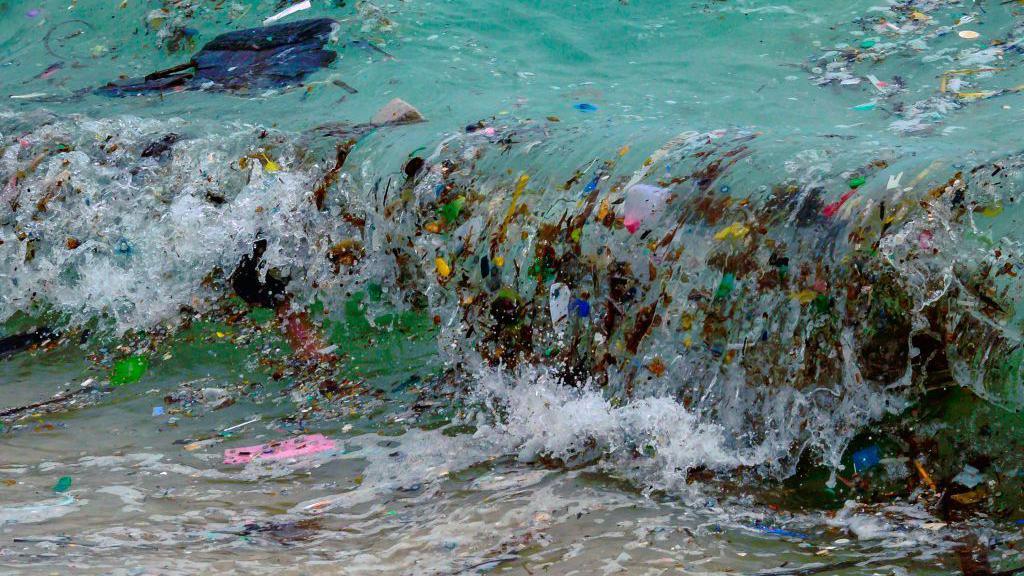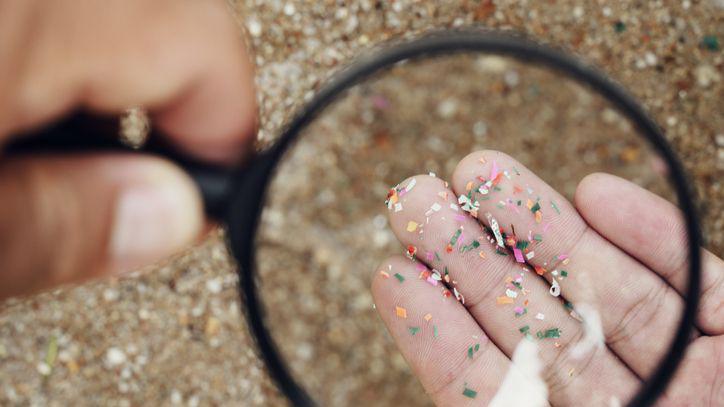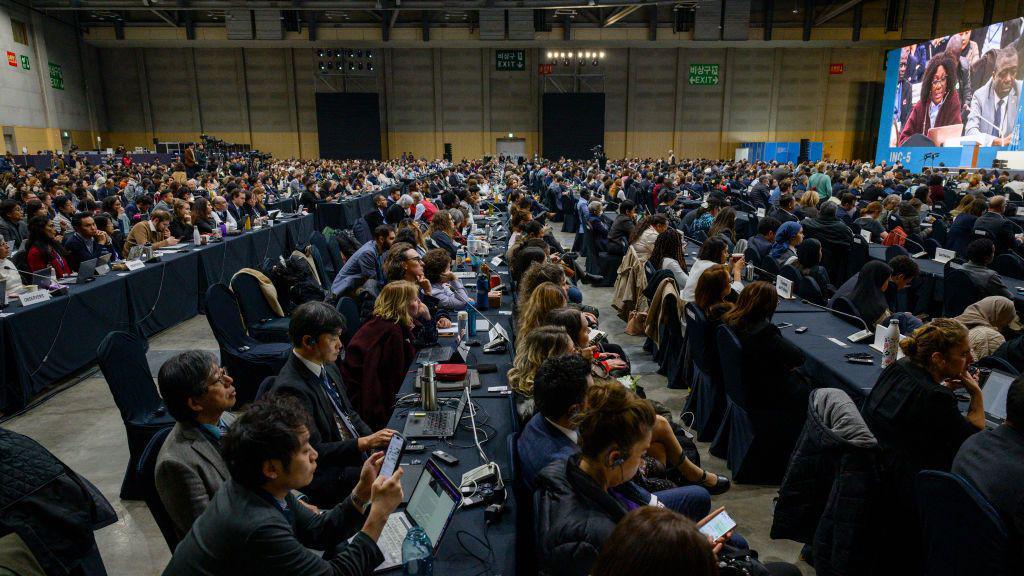Countries fail to reach deal on plastic pollution

- Published
Environmental campaigners have said they are disappointed that international talks to try to create the first-ever global deal to reduce plastic pollution failed.
More than 200 countries had gathered together in South Korea to try and come up with a solution to the problem.
However, after a week of negotiations, they were unable agree on how to put a limit on making plastic and to stop using certain chemicals and single-use plastic products.
What happened when global leaders came together to talk about plastic?
But, despite the result, the UN environment chief argued that the talks were not a total failure and that some important progress had still been made.
It is now expected that countries will meet again next year to try again to get an agreement.
More like this
Scientists develop 'environmentally friendly' plastic that dissolves in sea water
- Published24 November 2024
Recycling: Why products claiming to be ‘biodegradable’ might be misleading
- Published6 December 2023
Sailors find microplastics even in remote oceans
- Published7 June 2023
Why is plastic a problem?

Since 1950, the United Nations (UN) has estimated that more than eight billion tonnes of plastic have been produced globally - however less than 10% has been recycled.
This has led to millions of tonnes entering the world's oceans and seas, which could cause serious risks to wildlife and their environment.
In addition to this, the amount of plastic entering the world's rivers and seas is expected to triple by 2040, given how much is being made.
Plastic is also produced from fossil fuels, and is currently thought to be responsible for 5% of global emissions.
Why are microplastics an isssue?

Researchers have warned that any future agreement also needs to address the problem of microplastics.
When larger pieces of plastic such as drinks bottles break down, they can turn into smaller pieces. Anything smaller than 5mm is called a microplastic.
An international group of experts, including the University of Cambridge, argue that even if global production of new plastic is reduced - there are already billions of tonnes of waste in the environment, which will continue to break down into microplastics for many years to come.
These tiny particles can pollute the environment and create health problems for animals.
One of the scientists involved in the research, Zhenna Azimrayat-Andrews, explained: “Even with a sharp reduction in plastic entering the ocean, existing debris will split into smaller pieces and persist for centuries.”
As a result, experts say that plastic clean-up efforts are just as important as plastic reduction targets.
What happened at the talks?

In 2022, countries around the world agreed that a global agreement was needed to tackle the issue of plastic pollution - and they set a two-year deadline to try and find a solution.
The meeting in the South Korean city of Busan, was meant to be the final round of talks but countries were unable to find an agreement.
The main problem was around whether there should be a decrease in how much plastic is produced - or should there be more recycling to try and reduce plastic waste instead.
A group of 95 countries, including the UK, European Union, African Group and many South American nations, called for a reduction in plastic production levels.
However another group including Saudi Arabia and Kuwait disagreed and said the focus should be on managing waste and countries also expressed other concerns: such as how their development potential reduction of plastic production could affect its development.
Environmental campaigners have said they are disappointed with the result.
The World Wide Fund for Nature (WWF) described it as a huge blow and said that the group of 95 countries should go ahead with their own deal.
